Ikram Hawramani's Blog, page 29
June 11, 2019
Do blood tests or donating blood nullify the fast?
I need to have a blood test will this invalid my fast that I’m making up for Ramadan?
The removal of blood from the bloodstream, whether for tests or for donation, does not affect the fast, so you can do that without issue.
References:
Fatwa from the Qatari Fatwa Authority (Arabic PDF)
On artists who build shrines to their characters
I am fond of drawing fictional characters (fan arts) up until recently. After some research, I've learned that there are some people in various fan communities who would build tiny shrines dedicated to their favorite characters (whether it be joking or sincere) and/or call them their "god(dess)"/"lord and savior" for simply being admirable or breathtaking. How should I react to this? Should I stop drawing the characters I like, even if my sentiments are innocent? Should I dispose my old fan arts, too?
The behavior of other artists has no bearing on what you do. You are only responsible for your own art and behavior. So I wouldn’t worry about that.
June 10, 2019
If a mentally unstable person commits suicide, will they be punished by God?
If a mentally unstable person committed suicide would they still be punished by Allah?
God judges each person according to their own circumstances and limitations. So if a person commits suicide when they are mentally disturbed and not responsible for their actions, then God would judge that differently from someone who chooses to do it in cold blood.
What we know for certain is that God is more fair and just than any human, so there is never any need to worry about God being unjust to someone; it is God Himself who invented the very idea of justice by creating a universe in which such concepts make sense. We can trust God to be more just and kind than the most just and kind humans in history.
June 9, 2019
Arabic Grammar in Context by Mohammad T. Alhawary
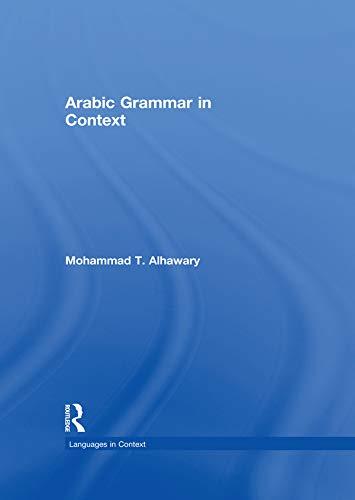 Get it on Amazon
Get it on AmazonArabic Grammar in Context (2016) by professor Mohammad T. Alhawary is an enjoyable and beneficial resource for learners of Arabic. It features excerpts from actual Arabic books and articles and uses them to illustrate grammatical points.
The book is not for complete beginners and should be used either after studying a basic grammar book or alongside one.
As is typical for books published by academic publishers, it is somewhat overpriced at over $40 on Amazon.
Why People Dislike Middleman Minorities: A Fix for Thomas Sowell’s Blind Spot
On most days of Ramadan, fasting makes it impossible for me to do my usual programming and writing work. For this reason I spent most of the daytime hours of this Ramadan reading books, finishing over 20 books (mainly audiobooks).
For years I have been aware of Thomas Sowell as perhaps the greatest living African American intellectual, and this Ramadan I finally got around to reading many of his books.
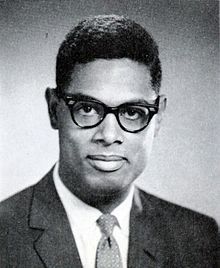 Thomas Sowell
Thomas SowellThomas Sowell is a very unique intellectual, a type that is very rare both among whites and blacks, and among blacks others like him are almost non-existent. He rejects the popular liberal ideology that presently rules in Western academia and media, and his status as a black person has enabled him to say things about racial and ethnic issues that most whites would likely not be able to get away with without being charged with racism. Sowell is, or at least tries to be, an empiricist, making him a man after my own heart. He rejects nice-sounding, feel-good political ideas for ideas that actually have merit and have been tested in the real world for their efficacy. Thus, for example, he rejects affirmative action (the practice among universities to allow blacks with lower qualifications to enter in preference to better-qualified whites), considering it harmful to blacks by making them think they should live up to lower standards than whites (among various other reasons). He also rejects the common narrative that many common problems of blacks today (such as father absenteeism and low economic status) are directly traceable to slavery, mentioning the fact that blacks in the early 20th century had much better social characteristics (such as male dedication to their families) than blacks in the second half of the 20th century.
Thomas Sowell is not, however, entirely free from bias. He sometimes strongly reflects the neoconservative bias of the Hoover Institution that he works for, for example considering free trade a highly positive thing and ignoring the technological servitude that results from it. He is also strongly invested in the Frankfurt School ideology that there are no interesting genetic-behavioral differences between different populations despite the existence of the vast literature of behavioral genetics. He also has a very strong pro-Israel stance (neoconservatism’s foreign policy views mirror Israel’s interests so exactly that they might as well have been written directly from Tel Aviv), naively thinking that the Muslim hostility toward Israel is merely anti-Semitism. He also entirely ignores the possibility that historical anti-Semitism may have had anything to do with Jewish behavior, again perfectly reflecting the Frankfurt School / neoconservative ideology.
However, Sowell has worked tirelessly to fight the pathologization of Western civilization that has been a major focus of the works of the members of the Frankfurt School and the New York Intellectuals who later emerged as the neoconservatives. Sowell has always maintained a certain independence and empiricism in spite of the influence of his milieu.
I started by reading his autobiography A Personal Odyssey, one of the most enjoyable and enlightening autobiographies I have read. I went on to read his economics books Basic Economics, Applied Economics and Economic Facts and Fallacies. I then read his 1981 book Ethnic America: A History, a historical and economic analysis of the various ethnicities that make up America (the British, the Germans, the Italians, Jews, etc.). Next I read his trilogy on race and culture: Race and Culture: A World View (1995), Migrations and Cultures: A World View (1996), and Conquests and Cultures: An International History (1998).
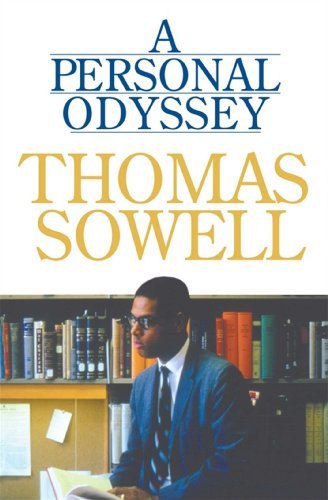 Get it on Amazon
Get it on AmazonI recently finished Black Rednecks and White Liberals (2005), a collection of essays on various issues. The most interesting aspect of this work is his study of “redneck” culture. According to Sowell, redneck culture originated in Britain and was characterized by high criminality and violence, a lack of interest in education, pride, grandiosity and sexual promiscuity. Redneck migrants from England brought their culture with them and established themselves in the American South, repeating the same behaviors that they were famous for in Britain.
Since nine tenth of black slaves lived in the South, they had the unfortunate fate of being acculturated to this redneck culture. Therefore according to Sowell, things that we consider to be “black” culture today (such as gangster rap and a low opinion of education) are actually the redneck culture of Britain that blacks took in. Blacks that were freed in the 19th century and lived in the North abandoned this redneck culture and took in New England’s extremely different (and far more productive) culture, so that these blacks were far more prosperous and educated and suffered far less from the problems that plagued both the whites and blacks of the South. He mentions that once “redneck” Southern blacks started to migrate en masse to the North, the New England blacks looked down on them and would do their best to move out of neighborhoods that these newly arrived blacks lived in, just as the whites did.
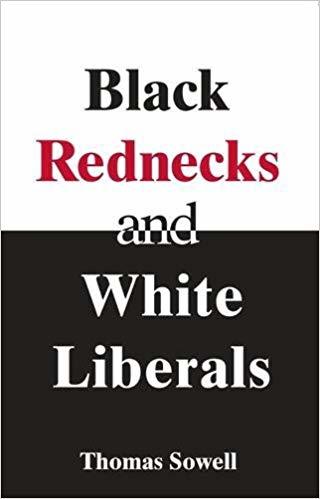 Get it on Amazon
Get it on AmazonAnother interesting topic that he covers in his highly unique way is slavery. Rejecting the common Western narrative that the West was somehow uniquely evil in its practice of slavery, Sowell says that slavery was a global phenomenon, and that Western civilization was actually the one that was almost entirely responsible for abolishing it. In the 18th and 19th century the British developed the idea that slavery was morally wrong and unacceptable, and they started to spend vast resources fighting it. The British started to patrol the seas with their ships, fighting slave traders around the world. This British crusade against slavery has been largely forgotten.
Islam and slavery
It was the British who forced the Ottoman Empire to ban slavery. Despite Islam’s humane attitude toward slaves and its strong encouragement for freeing them, it is a fact of history that slavery in the Islamic world represents one of the greatest moral failings of our civilization. We now realize, thanks mainly to Western civilization, that the most Islamic attitude toward slavery is tolerating it with the explicit goal of working to eradicate it. But throughout the centuries, Muslims failed to put this program into practice, instead representing one of the greatest forces supporting slavery throughout the world by creating a strong demand for it. Muslims happily purchased slaves without worrying about how these slaves were created in the first place: the extremely inhuman process by which African, Arab and European slave-raiders acquired slaves to be sold in the Islamic world.
It is not much to be proud of that Islam had very important protections for slave rights when it had nothing to say about how these slaves were acquired in the first place. By creating a vast market for slaves, the Muslims encouraged mass slaughter of Africans and Europeans by cruel slave-raiders. It is amazing to think that all of these Muslims, despite the high morality that the Quran and hadith taught them, did almost nothing about this incredibly unjust and oppressive system until the British came along to civilize them.
Islam and interest
As an economist, Thomas Sowell considers the charging of interest an essential part of the functioning of any well-developed economic system. To him, therefore, the fact that Islam forbids interest is just an ignorant and foolish prejudice that misunderstands the function of interest. Interest makes it possible to mobilize the wealth of society by encouraging the wealthy to use their money to fund economic growth. If people place their savings in the bank, and the bank lends this money to corporations that can invest the money in various economic projects, this makes it possible to mobilize a vast amount of society’s wealth in the service of economic projects.
What Sowell does not realize is that it is perfectly possible to do this without interest. It is, however, true that the ban on interest was a great limiting factor on economic growth in the Islamic world until Muslims learned in the 20th century that it is possible to create the Western pattern of wealth mobilization without interest by creating Islamic banks.
But now that the system is in place, the ban of interest is no longer a limiting factor on economic growth. Islamic finance makes it possible to mobilize society’s wealth without the use of interest through the ṣukūk system, enabling the creation of a financial world that is far more humane and borrower-friendly than the current, usurious Western financial system. For example, in an Islamic home mortgage, no loan is involved, and in the case of default, the home buyer always gets money back. Compare this to the Western system where default means not only losing the home, but sometimes owing hundreds of thousands of dollars to the bank. This incredibly unjust usurious system of the West makes it practically certain that the wealth of the bankers will continuously grow at a faster rate than the wealth of society, making the bankers the richest and most powerful people in the country, as has happened in the West. See my essay: Why the Banks are So Powerful and Why the Bible and the Quran Forbid Usury: Charting How Interest Creates Obscene Wealth Inequality.
Middleman minorities
A big focus of Thomas Sowell’s work is on so-called “middleman minorities”. These are ethnicities such as the Jews in the West, the Chinese in Malaysia, Indonesia and other Southeast Asian countries, and the Lebanese and Indians in Africa. Middleman minorities all share certain attributes:
They are generally wealthier than the native population.They are clannish and keep to themselves, maintaining a separate culture from the native population.They keep ties with their home countries and build international trade and financial networks with their co-ethnics.They are often involved in money-lending.They often monopolize entire sectors of the economy.
Middleman minorities have invariably been resented by the native population, who envy the wealth, success and power of the middleman minorities and dislike their separate, clannish existence.
According to Sowell, it is only prejudice and envy that makes native populations dislike middleman minorities since these minorities serve essential functions in their economies. For example, the Chinese in Malaysia are responsible for developing various sectors of the Malaysian economy, sectors that would have been far less developed, and perhaps even non-existent, if the Chinese had not been there. According to Sowell the middleman minorities create the wealth they enjoy. They do not exploit the native population and do not steal their wealth.
So why do natives dislike middlemen? Why were Jews so universally hated in Europe when they served such “essential” economic functions? Why did the Ugandans expel the Indian and Pakistanis who had helped build up so much of their economies? Why do Malaysians and Indonesians so dislike the Chinese among them?
Genetic-cultural altruism
Thomas Sowell’s unsatisfactory answers to the above questions are a very good illustration of the way specialization limits the intellectual horizons of specialists. Being an economist, he thinks of middleman minorities largely in economic terms and sees their positive contributions as more than justifying whatever else the presence of these middleman minorities may entail.
But an evolutionist is going to have a very different view of the clash between natives and middlemen. From an evolutionary perspective, ideally everyone you do business with will be your father. Genetic relatedness makes people more kind toward their own kin than towards strangers. And this behavior comes out on a daily basis in the interactions between the natives and the genetically separate middlemen.
When you need a loan from a bank, rather than going to someone from a strange land and culture who probably dislikes you and has no love for you, you would much rather go to the bank that is run by your father. You know you will be treated with much more sympathy, love and respect.
When you are desperate for employment, you know that your father will be much more likely to employ you than a random stranger who only thinks of you in economic terms.
Middleman minorities are a jarring element in the social fabric of the natives’ society. The natives want to be treated as kin, as humans, by their fellow humans. But middleman minorities only think of the natives in economic terms, dehumanizing them into mere tools of economics. This is an incredibly disorienting, degrading and alienating experience for a native. By being an impermeable, non-kin group, we know that middlemen deal with us only according to the harsh, cold laws of economics, rather than dealing with us as family.
The clannishness of middleman minorities only exacerbates the problem. By creating an impermeable group that deals with its own members charitably while dealing with natives as excluded aliens, they make the population feel as aliens in their own hometowns and countries. This is highly disconcerting. To go from the loving atmosphere of your own kin and ethnicity to the cold atmosphere of the alien middleman is never a pleasant experience.
The solution, the only solution, is for the middleman minority to go native by making their group permeable. Middleman populations such as historical Jews that are stringent about preventing intermarriage and cultural exchange are guaranteed to provoke extreme hostility by making the native population feel like aliens in their own lands. On the other hand, middleman groups that intermarry and become part of the native population both genetically and culturally will end all possible hostilities within a few generations, as happened with the Arab settlers in Southeast Asia (compare with the hostility that the Chinese provoke there nowadays). The Arabs intermarried and became part of the population. Despite their great economic success and their maintenance of familial and economic ties with the Yemeni coastal areas that they came from, they provoked no hostility that I can discover.
While middleman minorities may make the economy more efficient by their activities, they also make it less human by remaining alien, impermeable and clannish and having an us vs. them mentality toward the native population. The various expulsions of middleman minorities throughout history show that people would much rather enjoy a less efficient but more humane economy run by natives than a more efficient but less humane economy run by middleman minorities.
An economist like Thomas Sowell thinks that the natives should simply swallow their pride and their desire to be treated with the dignity that kin treat them for the sake of having clannish middleman minorities make their economies more efficient. This may make sense economically, but it makes no sense from a wider, human perspective.
The indignity of separatism
Middleman minorities, by the very fact of refusing to intermarry and assimilate with the natives, tell the natives on a daily basis that they consider themselves superior: the natives are simply not worth marrying. This is incredibly degrading to the natives. By considering themselves a superior genetic-cultural stock, the middleman minorities constantly stress the inferiority of the natives upon their psyches. It is highly naive to expect the natives to be content with this state of things. To the natives this is an itch that cannot be scratched. And the increasing success and prominence of the middlemen only serve to remind the natives of their own inferiority.
The problem with middleman minorities is not that they are genetically different from the natives, but that they work to maintain this genetic difference. A native does not need to be an intellectual to realize that this maintenance of genetic separatism is a judgment on his or her ethnicity. They know that they are treated as not being good enough. And that, in turn, leads to their developing a group identity of superiority over the middlemen: if you treat me as inferior, I will treat you as inferior. This leads to the stressing and exaggeration of the negative qualities of the middlemen among the natives. They are avaricious, uncharitable, selfish, lacking common decency, inhuman. The natives develop an ideology of ethnic pride that justifies to themselves their right to fight back against being treated as inferior, and this in turn leads to the natives calling for laws discriminating against the middlemen, boycotts, and even violence.
So the question is this: do middleman minorities have a moral right to practice business in an alien nation while maintaining genetic and cultural separatism? I believe this is a question that only the natives can decide for themselves. If the value that the middlemen offer is so great as to be worth the indignity of tolerating them, then the natives can choose to do so. And if the value they offer is not that great, they can choose to expel them. While economically the second choice may not make “sense”, from a psychological and evolutionary perspective, it makes perfect sense.
To put it another way, the natives have a moral right to demand to be treated as equally worthy by the middleman minority, and that, above all, means that the middleman minority must cease its clannishness and separatism and must start to intermarry with the natives. Middleman minorities that have gone this route, such as the Japanese in the United States, have completely ceased to be an issue, while middleman minorities such as the Jews in the United States, who have continued to work hard to fight intermarriage, continue to provoke some hostility. The Koreans working in black ghettos in the United States also provoke hostility due to their maintenance of genetic separatism from the blacks they serve.
Sowell may say that the middleman minority has a good reason to remain separate: the natives have an inferior culture. The Chinese, for example, say that the Malays are lazy and less reliable. But the Chinese could marry the Malays and attempt to fuse their supposedly superior culture with that of the Malays. Even if this involves sacrificing aspects of their superior culture, it may be the only reasonable way forward to end the conflict
The solution for the ethnic conflicts that have plagued Southeast Asia is for the governments of these countries to strongly promote intermarriage. In Thailand, due to the fact that the Chinese and the Thais share the same religion, intermarriage has been more common and with it the hostility toward the Chinese has been less pronounced. But in Indonesia and Malaysia, where the Buddhist-Muslim difference is a significant barrier to intermarriage, hostility has been much more pronounced. These countries can greatly reduce the conflict by passing laws that treat the Chinese as natives if they are married to a native.
A significant new middleman minority population are the Chinese in Africa. It is essential for African countries to instate policies requiring intermarriage in order to prevent the same sordid story of riots, pogroms and expulsions that have plagued the history of middleman minorities throughout the world. Unfortunately African nationalist ideas in some countries make the officials of these governments (such as in Uganda) hostile to the idea of intermarriage, a very unconstructive attitude that will only set up the stage for ethnic conflict.
An Islamic Examination of Homosexuality as an Identity
Our society trains us to think in a certain way (“If you disagree with me, then you’re hateful!”) and imposes limiters on our minds as we quote back popular talking points (“Love is love!”) without always examining them first or showing a willingness to consider different arguments. So I’m writing today, not as some moral authority, because I’m likely guilty of the same biases, but simply in an effort to share another argument, one that examines the queer identity on an interpersonal rather than societal level, in hopes that the following ideas might help people entrenched in Western culture think about the Islamic stance on homosexuality.
Throughout human history up until rather recently, homosexuality was considered an act, not an identity. Its recent reframing is a social construct based in Western society. That doesn’t make the identity “not real,” but it does make it not as rigidly inherent as people often talk about it being, which has certain philosophical implications (but that’s for another essay). There are even proponents of queer theory who argue that since sexuality is a spectrum on which people can fluidly shift, sexuality as an identity label therefore might not be the most useful way to conceptualize the subject.
Turning specifically to the Islamic conceptualization, it’s no surprise that homosexuality is inharmonious with Islam; Islam is a way of life in which one strives to achieve a balance between the spiritual and the physical. To define one’s very identity by one’s sexual attractions tips that balance sharply to the physical. Though such identities have become normalized in Western culture, think about the implications of believing that the most crucial, defining bit of information you have to share about yourself is what you’re into, what “gets you off.” Why does anyone other than one’s partner (let alone all of society) need to know such an intimate detail about a person anyway? Defining oneself based on one’s most animal-like moments is reductive to one’s capacity as a human. For this reason, even “straight” as an identity label is not Islamically sanctioned; we are all just humans.
A life so heavily focused on worldly pleasures is a life that seeks to hold value only in this super temporary world. One might argue back, “It’s not about pleasures, but love.” But the homosexual identity starts from a place of ruling out the possibility of all physical relationships other than same-sex ones, before ties are even established with a specific person. Setting the parameters for love based on lust invalidates such counterarguments.
One final thought, having said all this: it is the act that is not allowed in Islam, not the people who are seen as inherently different and therefore rejected. In fact, they are not inherently different at all, and that’s the point. But so long as they continue to identify as such, it’s also important to note that Islam teaches Muslims to always treat others with respect, even if their way of life differs greatly from the Islamic one. In one Quranic passage describing the tale of Prophet Lot, whose people were engaging in homosexual acts, he notably said to them not “I hate you,” but “I hate what you do.” Though this subject is complex and understandably touchy, I hope folks have found these ideas not offensive, but helpful. We are all trying our best to come to the truth and live in the best way. Jazakum Allah khair.
June 7, 2019
Arabic: An Essential Grammar by Faruk Abu-Chacra
 Get it on Amazon
Get it on AmazonArabic: An Essential Grammar by Faruk Abu-Chacra (2018) is a fair guide for beginners to Arabic grammar, although it is extremely overpriced ($48 USD on Amazon right now) for the value that it offers.
Learners wishing to master Arabic grammar should content themselves with the fact that they should read at least half a dozen Arabic grammar books before they can gain a reasonable handle on the highly intricate and confusing system that is Arabic grammar. This book would be a reasonable choice among others.
The book suffers from many errors in its Arabic orthography. It also suffers from the fact that lines that contain Arabic mixed with English have a much wider line-spacing compared to lines that contain only English, giving the text a very uneven look. Below is an example taken from the book preview on Google Books:
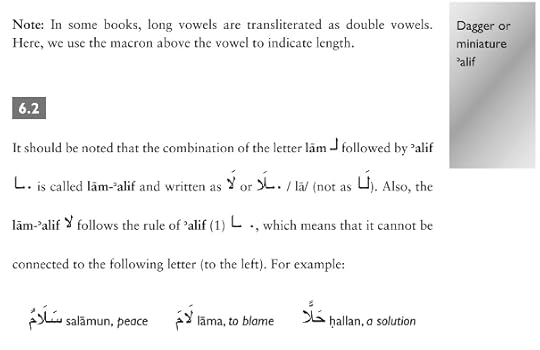
Another issue is that the section hints on the right (the text in the gray box shown above) seem to be entirely misplaced and have no relationship with the actual text.
The book, like many other grammar books, also suffers from using an unsatisfactory transliteration system. I wish all English books dealing with Arabic would start using the Brill system.
Additionally, on page 265 an Arabic phrase is erroneously said to be in the Quran:
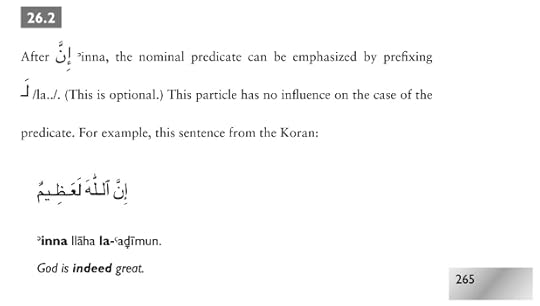
The phrase la-ʿaḍīm actually never occurs in the Quran.
Why is Islam opposed to homosexuality when it “harms no one”?
I disagree, consider this, it was stated that man is born to desire. Separating ourselves from desires brings us closer to Allah. A man born with the interest to murder is different than a homosexual. A homosexual isn't taking anyones life whereas a psychopath is hurting others. I think intention is very important. If ur intent isn't to harm others you aren't immoral. Ur denying people love. A man desiring a woman is still desire and he shouldn't do that either. The mere act of life is desire
The argument that “no one is being harmed” is false on two counts:
1. Homosexual relationships lead to “hookup cultures”, which lead to the disintegration of traditional marriage and family relations, as discussed in this essay. Understanding these harms requires thinking in terms of generations and centuries rather than individual lifetimes, which is something that most people cannot do unfortunately.
2. If God exists and if He does not approve of homosexual relationships, then engaging in this lifestyle and promoting it does the greatest possible harm, because it may doom its adherents to the Hellfire for eternity. What greater harm is possible? Unless you are a materialist who only thinks the present world exists, you must take account of both the present life and the afterlife in determining the harms or benefits of things.
As for your statement “If [your] intent isn’t to harm others you aren’t immoral”, that has no basis in moral philosophy. An action can lead to harm and to immoral results regardless of the intention of the person.
Productivity tips
Assalamualaikum, i was wondering if you have any productivity tips regarding reading and doing our daily work?
Alaikumassalam wa rahmatullah,
I used to read many articles and follow many websites that were dedicated to increasing personal productivity. But I realized at some point that it was all irrelevant to me. For example having a clean desk and working in a quiet environment is recommended by many productivity-related sources, but in my case my productivity had nothing to do with these things.
So instead I developed an empirical program where I kept track of my habits to determine what increased my productivity and what decreased it. For example I discovered that having caffeine (such as a strong coffee) in the afternoon made me less productive the next day, so I stopped doing that. I also realized that having a large breakfast or lunch reduced my ability to work, so these days I only have one major meal per day at around 4 PM or after. Before that I only have small amounts of food, such as an apple in the morning.
The most important productivity thing you can do is to keep track of how many hours you worked, and how many hours you read, every day, and to keep track of how the things you do affects these things (the meals you eat and their size, where you spent your work, what hobbies you engaged in). You can keep track of these things in an Excel spreadsheet, and eventually you may notice some patterns and find out how to best maximize your productivity. Without having empirical data on your performance it may be very difficult to find out what is benefiting and what is harming your productivity, since we are not naturally inclined to take into account what we did yesterday when we think about why we are not productive today.
The separation of church and state in Islam
What is your opinion on separation of church and state. Is such thing possible in Muslim countries?
Separation of church and state only matters if one envisions the state as an authority that forces certain behaviors on the population. This is mainly a concern for elitist intellectuals who think that a small number of intellectuals in the government should have the right to dictate to the rest of the population how to manage their lives. And since most of these intellectuals (in countries like the US) are secular, anti-Christian, highly elitist, and highly hostile toward ordinary citizens, they believe that the separation of church and state should be promoted because they do not want the values of ordinary citizens to affect their plans for managing the country according to their own ideologies.
In other words, these elitist intellectuals have a top-down view of government: they think they should be the moral authorities over the population. They do not want the population’s own morality to seep into the government.
But if we envision government in a non-elitist way, as merely a reflection of the will of the people, then the idea of the separation of church and state becomes irrelevant. A government is merely a tool for making life more stable and manageable, it is similar to the management of a business. The way that the people of a village can come together to manage their village’s affairs, the people of a country can come together to manage their country’s affairs. A government should not be a force from the top forcing certain behaviors on the people, it should simply be a reflection of the people themselves and their values and desires.
The smallest unit of government is a family, as the philosopher Hegel recognized. The idea of separating church and state within the family is absurd because the way the family manages its affairs is guided by its values, which naturally means its religious values among others. These values are not forced on them, it is their own democratically chosen values. And if we get a large number of families in a community, we have a government.
If by the separation of church what is meant is that a small number of religious authorities should not dictate to the rest of the population how they should live their lives, then I fully support that. But I reject the idea of anyone forcing a way of life on any other, so this should not be a problem to begin with. It is not the separation of church and state that is the problem, it is the forcing of the values of a minority over a majority.
In my view an ideal Islamic society would be a truly federalist version of the way the United States is today: each state, and even each city, would democratically choose its own laws. In this way the government of each city would simply be the desires and values of the people of that city reflected in their laws. Separation of church and state is completely irrelevant here because it is the people themselves choosing their own laws. No one is forcing it on them.
So the crucial value for ensuring a lack of oppression is not separation of church and state, it is this: a lack of the use of force by one group in the country to change the way of life of another group. This is the higher issue. Separation of church and state is simply a sub-category of this concern. The higher concern is non-domination.
As Treebeard said to Merry and Pippin in The Two Towers:
‘I am not going to do anything with you: not if you mean by that ‘‘do something to you’’ without your leave. We might do some things together.
In a perfectly harmonious society, no one would to use force on others. When people talk about the separation of church and state what they mean is that they worry about religious authorities controlling people’s ways of life. But if we reject the very idea of control from the state, if we say that the government should be nothing more or less than a reflection of the people’s desires and values, then there is no control involved. The secular would not control the religious, and the religious would not control the secular. People would respect each other’s rights to have different laws. A city with a religious majority can choose to have more religious values reflected in their laws, while a city with a secular minority can have secular values reflected in their laws.
But to elitist intellectuals this is unacceptable since what they really want is to force secularism on all to prevent the possibility of any community making its own moral choices. The moral choices, in their view, should all be made at the top by those who control the government.
So a skeptical thinker would realize that “separation of church and state” is merely another way of referring to the domination of the secular over the religious. I reject all domination, whether of the secular over the religious, or the religious over the secular. If both types of domination are ended, then there remains nothing to “separate”.
So what we should call for is not the separation of church and state, but non-domination. If non-domination is made law, then that automatically includes what separation of church and state is supposed to accomplish (a lack of the use of force in religious matters).
But non-domination also includes the destruction of the power of the intellectual elite to control the population’s ways of life. So rather than accepting the terms of the argument chosen by them (“separation of church and state”), we must instead move the terms to a higher plane: non-domination. In this way we give these elitist intellectuals a taste of their own medicine: taking away their power to dominate others.
As Muslims, we must seek a humanist, consensual community where we deal with non-Muslims as equally valued humans, never wanting to do things to them, but wanting to do things with them. And as for those who call for the separation of church and state, they either belong to the class of elitist intellectuals who know exactly what they are doing (they are calling for the domination of the elite over the average citizen), or they have naively bought into the ideology of the elite without fully analyzing its intentions and implications.



